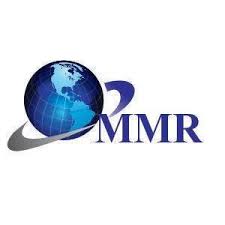Pain is considered body language that tells you something is not okay. After surgery, there is an expectation of a certain level of pain. But, if pain persists with pain medicine, a more serious problem may be present. Your healthcare provider and nurses will enquire about your pain as their effort is to make you comfortable. You must inform them if their trials to control your pain are all in vain.
With today’s advanced and improved pain medications, there is no option for anyone to bear severe pain. Following effective treatment plans, you will recover faster and can go home to continue normal activities sooner.
Types of Pain
Here are given types of pain which anybody can suffer from.
-
Chronic Pain
Chronic pain ends for three months or longer and may occur due to conditions like arthritis, migraine, and a lower back problem. Pain physicians in Dallas can provide several effective treatment techniques.
-
Labor Pain
The pain of labor and childbirth can be removed by a variety of options, like breathing techniques and medications.
-
Injury
Injury or acute pain generally results due to sudden incidences and typically prolongs for less than three months. Management options include physical therapies, medication, and massages.
-
Fibromyalgia
Fibromyalgia has proved to be difficult to diagnose and treat. Certain medications, therapies, and lifestyle changes can still identify and treat specific symptoms.
-
Post Op
Pain after a prominent surgery, including a heart operation or hip replacement, can impact someone for weeks or months — but it is possible to manage the condition effectively.
-
Myofascial Pain Syndrome
Most options for this syndrome point out the trigger points that stimulate pain, but several other techniques are also present.
-
Knee Pain
There are several causes of knee pain — and various techniques to reduce or delete it. Often, the pain can be eliminated and managed without using medication.
-
Back Pain
Considering multiple options for treating chronic back pain and sciatica that involve promising new approaches is optimum.
What are the Types of Pain Management?
Different treatment plans manage other types of pain. You may consider a group of pain management specialists who collaborate to help you manage prolonged or severe pain. These experts work in a department of medicine called algiatry.
Your healthcare provider, like Dr. Rao K Ali, may recommend one choice or a combination of various pain management options. These may consist of:
-
At-home Remedies
Pain can be relieved due to injuries, muscle damage, muscle ofttis, or disorder. Ask your doctor about the RICE technique(rest, ice, compression, and elevation). As you rest, the application of ice or a cold compression every 20 minutes will reduce swelling and pain.
-
Counseling and Therapy
Certain techniques, such as Cognitive behavioral therapy (CBT) and biofeedback, can facilitate you in treating chronic pain by altering how your brain reacts to physical pain. As chronic pain can also cause depression and anxiety, your doctors may recommend other therapeutic techniques like counseling or meditation. All these techniques aim to help you control these emotions. Most people maintain a pain diary to record the factors that improve or worsen pain. This information can guide your provider in planning a treatment program.
-
Exercise
Your healthcare expert may suggest Pilates, swimming, yoga, walking, tai chi. These exercises can decrease chronic pain, elevate posture, and help your body perform better. They also have an impact on your mental health and maintaining a balanced life, says Dr. Z.
-
Hands-on Treatments
Many individuals find pain relief after physical therapy, acupuncture, massage, chiropractic adjustments, and osteopathic manipulative treatment (OMT). During all hands-on therapies, your doctor tries a range of technologies. They eliminate pain, enhance alignment, and improve body work performance.
-
Injections and Stimulations
Healthcare experts may suggest radiofrequency ablation and transcutaneous electrical nerve stimulation (TENS) to manage nerve pain. Steroid injections carry pain relief drugs directly to the affected area.
-
Lifestyle Changes
Specific lifestyle modifications can improve pain. If you are obese or have extra weight, your expert provider may suggest losing weight. Individuals who plan a balanced diet, drink excess water, sleep well, and reduce stress are less susceptible to chronic pain.
-
Medications
According to the type of pain, your doctor may ask you to take prescription or OTC medications to reduce discomfort. You may require antibiotics to manage infection and inflammation, muscle relaxers for spasm control, or anti-inflammatory medications to remove swelling. Some of these medications (like opioids) can have withdrawal effects. Always seek guidance from your provider’s instructions while administering medications.
Summary
Experiencing pain can be a big challenge, both mental and physical. Dr. William Moore will make an individualized management plan if observing a painful condition. Be a clear and honest patient if your provider asks about when your pain initiates and what triggers it. Tell him if you sense depression or anxiety. If pain comes back or does not improve after treatment, your management plan may need to be adjusted.



























